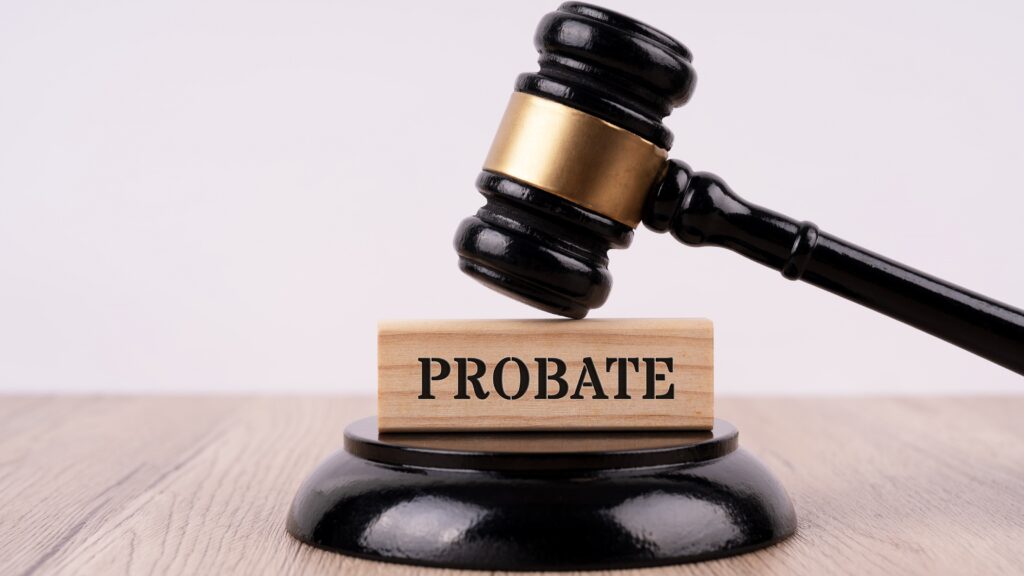Navigating the complexities of probate can be challenging enough without the added stress of family disputes over real estate. Real estate often represents a significant portion of an estate’s value, making it a common source of contention among heirs and beneficiaries. Understanding the sources of these disputes and implementing strategies to avoid them can save time, preserve relationships, and ensure the probate process goes as smoothly as possible. This comprehensive guide delves deeply into the various aspects of handling real estate in Texas probate, offering practical advice and real-life examples to help you manage and resolve potential conflicts.
Understanding Probate and Its Impact on Real Estate
Probate Defined

Probate is the legal process by which a deceased person’s estate is administered and distributed. In Texas, this process involves validating the decedent’s will, if one exists, paying any outstanding debts and taxes, and ultimately distributing the remaining assets according to the terms of the will or, if no will exists, according to Texas intestacy laws.
Real Estate in Probate
Real estate can significantly impact the probate process due to its value and the potential emotional attachment family members might have to the property. Managing and distributing real estate involves additional layers of complexity, including valuation, maintenance, and legal title issues. Disputes often arise over who gets the property, how it should be maintained, or whether it should be sold.
Common Causes of Disputes Over Real Estate
Ambiguous Wills
When a will does not specify how real estate should be distributed, it can lead to multiple interpretations by family members. Ambiguities might include vague language or conflicting instructions that create confusion and disagreement.
Unequal Distribution
Perceived unfairness in the distribution of real estate can be a major source of conflict. If some heirs receive more valuable properties while others receive less, it can lead to resentment and disputes.
Emotional Attachment
Family properties often hold significant emotional value, which can make decisions about selling or dividing the property particularly contentious. Memories associated with the property can lead to disagreements over whether it should be sold or kept within the family.
Management Disputes
During probate, the responsibility for managing and maintaining real estate can lead to disputes. Heirs might disagree on how the property should be managed, who should bear the costs of maintenance, or how income from the property should be handled.
Effective Strategies to Avoid Disputes
1. Draft a Clear and Detailed Will

Importance of Specificity
A well-drafted will is crucial in preventing disputes over real estate. The will should:
- Specify Real Estate Allocation: Clearly state which properties will be given to which heirs. Avoid vague language and ensure that each property is accounted for.
- Include Instructions for Sale: If the will instructs that certain properties should be sold, include detailed instructions on how the sale should be conducted, including any conditions or preferences.
Legal Guidance
Engage an experienced probate attorney to help draft the will. An attorney can ensure that the language is clear and legally sound, reducing the likelihood of future disputes.
2. Utilize a Living Trust
Benefits of a Trust
A living trust can simplify the probate process and reduce disputes by:
- Transferring Ownership: Place real estate into a trust during the decedent’s lifetime. This transfer avoids the need for probate, as the property is distributed according to the terms of the trust.
- Designating Successor Trustees: Appoint a successor trustee who will manage the trust and distribute assets according to the decedent’s wishes. Clear instructions within the trust document can help prevent misunderstandings.
3. Foster Open Communication
Family Meetings
Holding family meetings to discuss the will and probate process can:
- Increase Transparency: Ensure that all family members understand the decedent’s wishes and the probate process.
- Address Concerns Early: Provide a platform for family members to express concerns and ask questions, helping to resolve potential issues before they escalate.
4. Mediation and Arbitration
Mediation
If disputes arise, mediation can be an effective way to:
- Facilitate Negotiations: A neutral mediator can help family members communicate effectively and negotiate a resolution that is acceptable to all parties.
- Resolve Conflicts Amicably: Mediation often leads to quicker and less adversarial resolutions compared to litigation.
Arbitration
If mediation is unsuccessful, arbitration offers:
- A Binding Resolution: An arbitrator makes a final decision regarding the dispute, which is legally binding and enforceable.
- A Faster Process: Arbitration can be a quicker alternative to court proceedings, helping to expedite the resolution of disputes.
5. Seek Professional Guidance

Probate Attorney
A probate attorney can:
- Provide Legal Advice: Offer guidance on the probate process, including the management and distribution of real estate.
- Represent Interests: Advocate for your interests in court if disputes arise.
Real Estate Appraiser
Professional appraisals can:
- Ensure Fair Valuation: Provide an accurate valuation of real estate, which can help resolve disputes over property value.
- Support Transparent Decisions: Use appraisals to inform decisions about selling or distributing properties, ensuring that all parties are treated fairly.
6. Implement Family Agreements
Property Management Agreements
To manage real estate effectively:
- Draft Agreements: Draft agreements that outline property maintenance responsibilities, specify who will cover the costs, and establish decision-making procedures.
- Clarify Responsibilities: Define the roles and responsibilities of each family member involved in managing the property.
Buy-Sell Agreements
If selling the property is the chosen course of action:
- Outline Sale Procedures: Set procedures for selling the property, including how to value it and distribute the proceeds.
- Address Potential Issues: Include provisions for handling potential issues or disagreements related to the sale.
7. Prepare for Contingencies
Backup Plans
Include contingency plans in your estate planning to:
- Address Unexpected Issues: Prepare for unforeseen circumstances that might arise during the probate process, such as disagreements among heirs or changes in property value.
- Provide Flexibility: Ensure that the estate plan can adapt to changing circumstances, helping to prevent disputes from escalating.
Conflict Resolution Clauses
Consider including clauses in the will or trust that:
- Outline Resolution Procedures: Define how to resolve disputes, such as by requiring mediation before pursuing litigation.
- Encourage Cooperation: Promote cooperative problem-solving among family members, helping to maintain harmony.
Real-Life Examples of Effective Dispute Resolution
Scenario 1: Ambiguous Will
When Jane’s will was unclear about the disposition of her family home, her children faced confusion and potential conflict. By holding a family meeting and engaging a mediator, they were able to discuss their preferences and reach a consensus. They decided to sell the property and divide the proceeds equitably, avoiding prolonged disputes and preserving family relationships.
Scenario 2: Trust Solution
Robert’s estate plan included a living trust that placed his real estate into the trust. When he passed away, the successor trustee managed the distribution according to the trust’s terms. This clear and straightforward approach prevented any disputes among beneficiaries and streamlined the probate process.
Scenario 3: Emotional Attachment
Sarah’s siblings had strong emotional ties to their family cabin, leading to disagreements over whether to sell or keep it. Through mediation, they were able to express their feelings and negotiate a solution. One sibling agreed to buy out the others, allowing the family to retain the cabin while resolving the dispute amicably.
Conclusion
Avoiding family disputes over real estate in Texas probate requires careful planning, clear documentation, and open communication. By drafting a detailed will, utilizing trusts, fostering transparency, and seeking professional guidance, you can navigate the complexities of probate and minimize conflicts. Implementing family agreements and preparing for contingencies further ensures a smoother process and helps maintain harmonious family relationships. Ultimately, effective management of real estate in probate not only honors the decedent’s wishes but also preserves family unity and peace.








